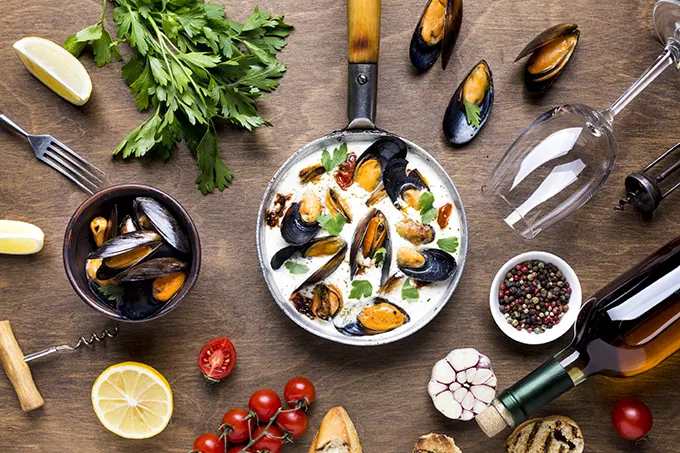One of the key features of the Mediterranean diet is its emphasis on salads and fresh vegetables, which are an essential part of every meal.
Mediterranean salads are built around fresh, seasonal vegetables like tomatoes, cucumbers, lettuce, peppers, and onions—packed with fiber, vitamins, and antioxidants that support overall health.
Extra virgin olive oil is the go-to dressing, adding heart-healthy monounsaturated fats that promote good cardiovascular function.
To enhance flavor and nutrition, salads often include olives, nuts, feta or other cheeses, along with aromatic herbs like oregano and parsley.
Lentils, chickpeas, or beans are commonly added, enriching salads with plant-based protein and fiber.
In the Mediterranean diet, salads aren’t just a side dish—they can be a complete meal, combining fresh vegetables with proteins like chicken and healthy fats for a balanced and satisfying dish.
More than just a staple, salads are the foundation of Mediterranean cuisine, offering endless variety while maintaining exceptional nutritional value.





